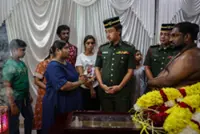Every two minutes, a woman dies of cervical cancer somewhere in the world. It is the third most common cancer in Malaysian women, with Sarawak being the state with the highest rate of cervical cancer in Malaysia, and 75% of Malaysian women diagnosed with cervical cancer are below 65 years old, says clinical oncologist Dr Yolanda Augustin.
In light of this, 20 cyclists will cycle 700km from Kuching to Bintulu, over six days, to raise funds for cervical cancer screening for marginalised women in Sarawak. The Sepeda Amal Borneo 2023 charity cycling event, organised by the Malaysian Medical Association in support of Rose Foundation, started on July 15 until 20.





